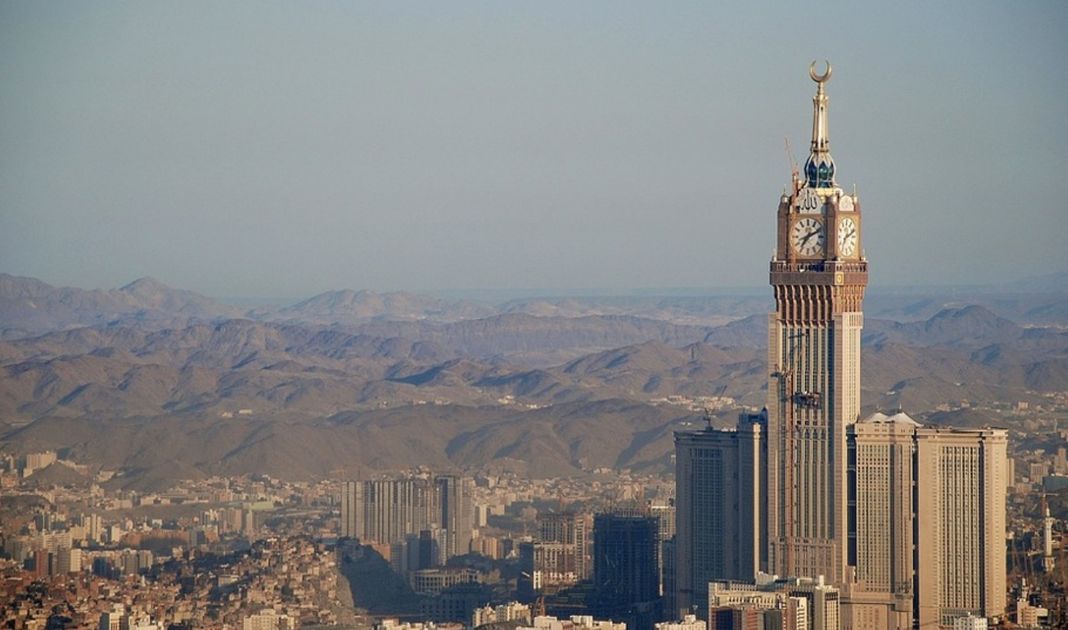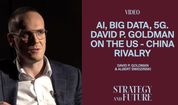As oil prices fall, US-Saudi relations continue to sour

(pixabay.com)
Saudi’s next steps, Sen. Cramer added, “will determine whether our strategic partnership is salvageable.” This concern is influenced, of course, by the fact that Senators Sullivan and Cramer represent states where current and future employment rates are heavily dependent on the price of oil. They need to be seen to be doing something to try to help their regions.
US-Saudi relations have been wobbly for some time, as can be seen in a speech by President Donald Trump in October 2018, when he said in a boasting tone during a rally in Southaven, Mississippi (a suburb of Memphis, Tennessee):
We protect Saudi Arabia. Would you say they’re rich? And I love the king, King Salman, but I said, King – we’re protecting you. You might not be there for two weeks without us. You have to pay for your military. You have to pay.
This was coming from someone who had initially been seen as a friend of Saudi Arabia, having done so much to reverse “the US pivot towards Iran” that had begun under President Obama. Just four months later, the Crown Prince of Saudi Arabia, 33-year-old Mohammed bin Salman (widely known as ‘MbS’) was in Beijing to meet with Chinese President Xi Jinping as the two countries signed US$28 bln worth of deals.
That meeting might come to be seen as a very significant moment. Saudi Arabia was historically much closer to Taiwan (the Republic of China) than the People’s Republic of China (PRC). Up until the mid-1990s, Taiwan had a much stronger economy and better oil refineries. The first diplomatic visit between the PRC and Saudi Arabia didn’t take place until 1999 and it wasn’t until 2006 that a Saudi head of state, King Abdullah, visited Beijing. In 2011, during the Arab Spring, the PRC began supplying Saudi Arabia with much-needed military equipment (no questions asked), whilst the US was encouraging political reform in Shia-dominated Bahrain (where the ruling elites are Sunni Muslims).
The Bahrain Uprising of 2011 was put down with the help of 1,000 troops from Saudi Arabia just one month after it had begun. So when Trump talks so loosely in front of the cameras and the cheering supporters about a ruling elite (in KSA) that’s potentially two weeks away from being overthrown, he’s pushing at a major sore point and the reaction he got appears not to have been the one he was apparently expecting.
Bruce Riedel wrote in an essay for the National Interest in 2011 that “Saudi and Pakistan intelligence connections are extremely close.” Bear this in mind when reading the following quote from Andrew Small’s 2015 book The China-Pakistan Axis: Asia’s New Geopolitics:
For decades, Beijing’s secretive ties have run closer than most formal alliances. Founded on a shared enmity with India, China’s backing to Pakistan has gone so deep that it was willing to offer the ultimate gift from one state to another: the materials that Pakistan’s nuclear scientists needed to build the bomb. Pakistan acted as China’s backdoor during its years of diplomatic isolation, the bridge between Nixon and Mao, and the frontline in Beijing’s struggles with the Soviet Union during the late stages of the Cold War. Now, Pakistan is a central part of China’s transition from a regional power to a global one. The country lies at the heart of Beijing’s plans for a network of ports, pipelines, roads and railways connecting the oil and gas fields of the Middle East to the mega-cities of East Asia. Its coastline is becoming a crucial staging post for China’s take-off as a naval power, extending its reach from the Indian Ocean to the Persian Gulf and the Mediterranean Sea. Penetration by Pakistan’s intelligence services into the darkest corners of global jihadi networks are a vital asset to China as it navigates its growing interests in the Islamic world, and seeks to choke off support for the militant activities that pose of the gravest threats to China’s internal stability.
Five years later, might we be better off talking about a China-Pakistan-Saudi axis? And – if so – could this explain those decisions taken by the Saudi government in the first week of March 2020 to increase oil production (just as Italy and Spain were going into nation-wide lockdowns due to the spread of the Coronavirus), with all the pain this seems to have caused in Alaska and North Dakota. Senator Ted Cruz of Texas (the biggest oil producing state) is also quoted as saying that “Texas is mad (with the Saudis).”
Trump – in his Memphis-Southaven indiscretion – made it brutally (and embarrassingly) clear that the US-Saudi strategic partnership is a transactional one. Perhaps the Chinese government and intelligence services, ever more inclined to play the long-game, have simply offered them a better deal? In which case, Pakistani intelligence will surely play a bigger role in helping maintain a KSA status quo which faces very similar problems to the Chinese in Xinjiang Province.
Crown Prince Mohammed bin Salman (MbS), the 34-year-old heir-designate of the Saudi royal family, is the man Trump reportedly had to negotiate with to find a resolution to the oil price crisis. He is seen as a KSA ‘moderniser,’ limiting the power of the religious police, reopening cinemas and allowing women to drive. He’s also thought to be the owner of the world’s most expensive painting, Salvator Mundi (Leonardo), which was bought at auction in November 2017 for US$450 mln but was mysteriously never unveiled at the Louvres Abu Dhabi.
MbS may be seen as a KSA ‘moderniser’ but this does not necessarily mean that he and his associates will pass the English Premier League’s fit-and-proper-persons test in their bid to buy Newcastle United – although it is thought that they will. Felix Jakens from Amnesty International had this to say about the deal:
It would demonstrate even a regime like Saudi can pass them [the owner’s test] and we would urge – and we have urged – the Premier League to be fully aware of what’s happening in Saudi Arabia, what sportswashing is and what it means and be really conscious of the Premier League’s reputation. They run an inclusion and diversity campaign, the Rainbow Laces campaign, which has been very successful and is about the inclusion of people from all walks of life, including LGBT people, and Saudi Arabia is a country where LGBT people can face the death penalty so they need to be making judgements on all of the criteria in their owners and directors test and we’re also urging them to consider the human rights situation when they do that.
The Premier League is a business at the end of the day and they are probably more concerned about including Newcastle United in the title race than they are about LGBT rights in Saudi Arabia. If the deal does go ahead, it will be a major boost to the global reputation of Mohammed bin Salman. Incidentally, the North-East (the once mineral-rich English region that’s home to Newcastle-upon-Tyne) is the most distant from London and the most socially-conservative. Newcastle United, despite placing 13th out of 20 clubs in the current season, have the league’s seventh-highest attendance at over 48,000 – they arguably have the most die-hard fans in the country.
There are signs that KSA is changing in a (relatively) liberal direction and all the attention connected with ownership of a big Premier League football club will help facilitate this. We can expect to see it to become more and more like the United Arab Emirates in this respect but it would be a mistake to read this as a sign of a so-called pro-Western orientation. The strategic partnership between the US and Saudi Arabia has suffered a lot of damage in the last 18 months. It’s not clear that either side really needs or wants the other. And so it seems they are locked into an unhappy and brittle alliance. For now.
Autor
Thomas Riley
Thomas Riley runs the Flows and Frictions podcast for Strategy&Future. Originally from Manchester, England, he has been living and teaching English in Katowice since 2009.






Trwa ładowanie...